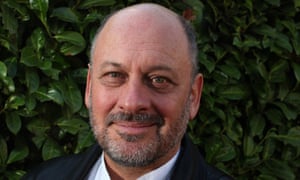Extract from The Guardian
Climate scientist says the world has come a long
way since the failed Copenhagen climate conference and now accepts
the urgency of tackling rising temperatures
The crowd listen to speeches at the Domain in
Sydney, Australia, on 29 November 2015 as part of global climate
marches in the lead-up to COP 21 in Paris. Photograph: Ben Doherty
for the Guardian
Sunday 29 November 2015 19.03 AEDT
The world has “come late” to realising the
potential devastation of climate change, Prof
Tim Flannery says, but the former Australian of the Year believes
there is now a global understanding of the need to cut emissions
“hard and fast” to avoid calamitous global warming.
Flannery, also formerly the chairman of the
Copenhagen Climate Council, said world leaders were more committed
now to thrashing out a binding global climate agreement than they
were at the Copenhagen climate summit five years ago.
The 2009 conference achieved a broad commitment
from countries to lower emissions by 2020, but derailed
over disagreement between developed and developing countries over
the strength of the cuts. The conference was condemned as a failure
because countries would not sign a full treaty.
Speaking on the sidelines of the
Sydney climate change rally on Sunday, Flannery told The Guardian
he was more confident the COP21
talks in Paris could achieve strong binding targets.
“People understand the urgency now, people
understand how late it is to act, so we’re better prepared. The
politicians understand it better, the bureaucrats understand it
better.”
“People understand the need to cut ‘hard and
fast’ now, before it’s too late, and we are locked into something
truly catastrophic.”
He said while Paris was a vital, and almost final,
chance for global leaders to commit to binding targets, it would not
be the end of tightening of global emissions.
The Paris targets, if met, Flannery said, would
bring the world down to a global temperature rise of between 2.7 and
3.5 degrees from pre-industrial levels.
Tim Flannery. Photograph: Eamonn McCabe for the
Guardian
This year the global temperature has reached one
degree above those levels. World leaders and the UN have posited that
global warming must be limited to two degrees above pre-industrial
levels by 2100, to avoid catastrophic climate change and sea-level
rise.
But Flannery said, “people are now looking for
solutions, and seeing that they can be found”, citing a halving in
the cost of solar power since the Copenhagen talks five years ago.
“I was heavily involved in Copenhagen as the
chairman of the council, and when I used to talk to business they
always used to talk about the cost, now when they talk, they talk
about the opportunities. That mindset has changed.”
A failure to reach binding agreements in Paris
would have calamitous climate impacts, felt most acutely in
neighbouring Pacific countries, but also domestically: “we would
reach the level where the Great Barrier Reef would begin to die”.


No comments:
Post a Comment